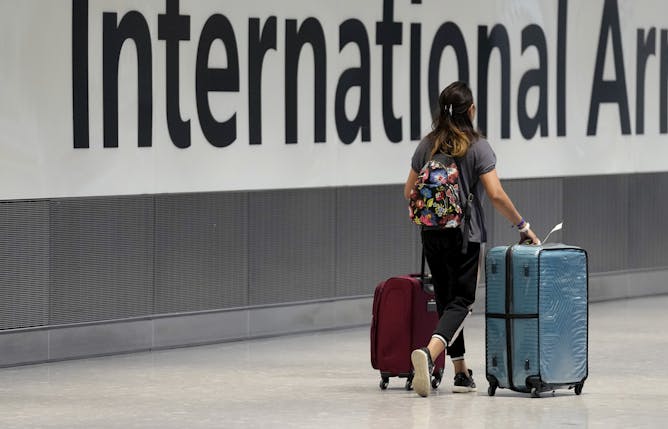|
The pandemic saw an increase in the number of Canadians that adopted pets. But now that people are returning to in-person work, many pet owners are struggling to find affordable sitters, dog walkers and daycares for their pets.
In lieu of surrendering their pets to shelters, many owners are looking for pet-friendly workplaces. Some are even willing to take a pay cut in exchange for a pet-friendly office.
Today in The Conversation Canada, Tina Sharifi and Souha R. Ezzedeen from York University outline the benefits of pet-friendly workplaces and provide organizations with suggestions for making their offices more pet-friendly.
They write: “Organizations should respond to the animal care and companionship responsibilities of their employees, recognizing the importance of pets in people’s lives.”
Also today:
All the best.
|

A survey found six in 10 pet-owning workers left their job for a pet-friendly workplace and seven in 10 were willing to trade pay for a pet-friendly office.
(Shutterstock)
Tina Sharifi, York University, Canada; Souha R. Ezzedeen, York University, Canada
The rising number of pets — and their importance to their owners — has prompted organizations to respond to the growing demographic of pet-owning employees.
|

In 1907, a large anti-Asian riot took place in Vancouver. Here is a colourized photo of 245 Powell St., a stop on a walking tour that retraces the steps of the angry mob.
(360 Riot Walk, Henry Tsang)
Henry Tsang, Emily Carr University
A virtual walking tour traces the route of a white mob that attacked Asian communities of Vancouver in 1907. Learning about past contexts may shed light on the recent surge in anti-Asian violence.
|

Going online often involves surrendering some privacy, and many people are becoming resigned to the fact that their data will be collected and used without their explicit consent.
(Shutterstock)
Meiling Fong, Concordia University; Zeynep Arsel, Concordia University
Many people have become resigned to the fact that tech companies collect our private data. But policymakers must do more to limit the amount of personal information corporations can collect.
|

There are variations in school curricula, grading policies and practices and social, cultural and educational values that affect grading and schooling internationally.
(AP Photo/Matt Dunham)
David Baidoo-Anu, Queen's University, Ontario; Christopher DeLuca, Queen's University, Ontario; Liying Cheng, Queen's University, Ontario
Understanding complex and contextual differences in grading across cultures and countries is important. Only in doing so can we interpret student achievement based on grades in a fair and valid way.
|

De la fumée se dégage de wagons contenant du pétrole brut après le déraillement d’un train à Lac-Mégantic, au Québec, en 2013.
La Presse canadienne/Paul Chiasson
Bruce Campbell, York University, Canada; Jennifer Quaid, L’Université d’Ottawa/University of Ottawa
Deux compagnies ferroviaires, le CN et le CP, déterminent les lois, les règles et les règlements – avec la complicité de bureaucrates et de législateurs – de manière à servir leurs propres intérêts.
|
Podcasts
|
-
Daniel Merino, The Conversation; Nehal El-Hadi, The Conversation
New technologies are often surrounded by hopeful messages that they will alleviate poverty and bring about positive social change. History shows these assumptions are often misplaced.
|
|
Arts
|
-
Adam de Paor-Evans, University of Plymouth
With their back catalogue finally being made available on streaming services, a new generation of rap lovers will get to enjoy their groundbreaking work.
|
|
|
|
Politics
|
-
Abiodun Fatai, Lagos State University
The use of the Bimodal Voter Accreditation System or BVAS and the result-viewing portal IReV improved the running of the elections.
|
|